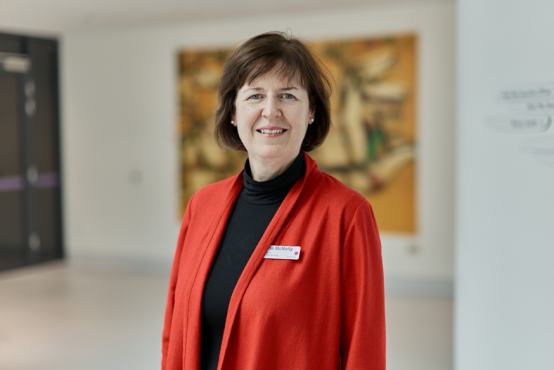General News
United fight against ovarian cancer
2 min read 01 February 2022
Peter MacCallum Cancer Centre works closely with the Royal Women’s and Royal Melbourne hospitals in the treatment of ovarian cancer, with our experts also at the cutting edge of research. As part of Ovarian Cancer Awareness Month, we share how we are working hard to improve the lives of those diagnosed. Ovarian cancer is the deadliest gynaecological cancer, with more than 200,000 women dying from the disease annually – including more than 1,000 Australian women. While progress in diagnosing and treating ovarian cancer has been slower compared to other types of cancer, surgery has proven a highly effective way to help women deal with ovarian cancer, and improve quality of life. Research has also been a critical area of learning, with a focus on chemotherapy, PARP inhibitor drug therapy, and genetic screening trials. Associate Professor Orla McNally, Director of Gynaecology and Cancer Services at the Women’s leads the shared service with Peter MacCallum Cancer Centre and the Royal Melbourne Hospital that helps to helps to diagnose, treat and manage pre-cancerous and cancerous gynaecological conditions. Ovarian cancer is one of Associate Professor McNally’s areas of specialty, with around 70 patients presenting annually. “Effective surgical removal of ovarian cancer cells is one key way that we can improve the lives of women diagnosed with ovarian cancer,” she said. “The procedure can be very complex, with some of these areas of cancer so small that they resemble powdered sugar, dusted throughout a patient’s abdominal cavity.” Associate Professor McNally says chemotherapy, alongside surgery, is the best, current method of treatment. These treatments can be offered simultaenously in some cases – an unusual occurence in the cancer space. A major challenge for experts is that ovarian cancer symptoms are commonly mistaken for gastrointestinal problems, and go undiagnosed. Research shows that genetics also plays a powerful role, with mutations in two genes (BRCA1 and BRCA2) linked to ovarian, breast, and other types of cancer. Around 1,700 new cases of ovarian cancer are diagnosed each year in Australia, and seven out of 10 women have late stage disease. As part of Ovarian Cancer Awarness Month, women are encouraged to learn the signs of ovarian cancer: Additional symptoms: For more information, visit the Peter Mac webpage, the Women's webpage or go to Ovarian Cancer Australia.

Learn the signs
